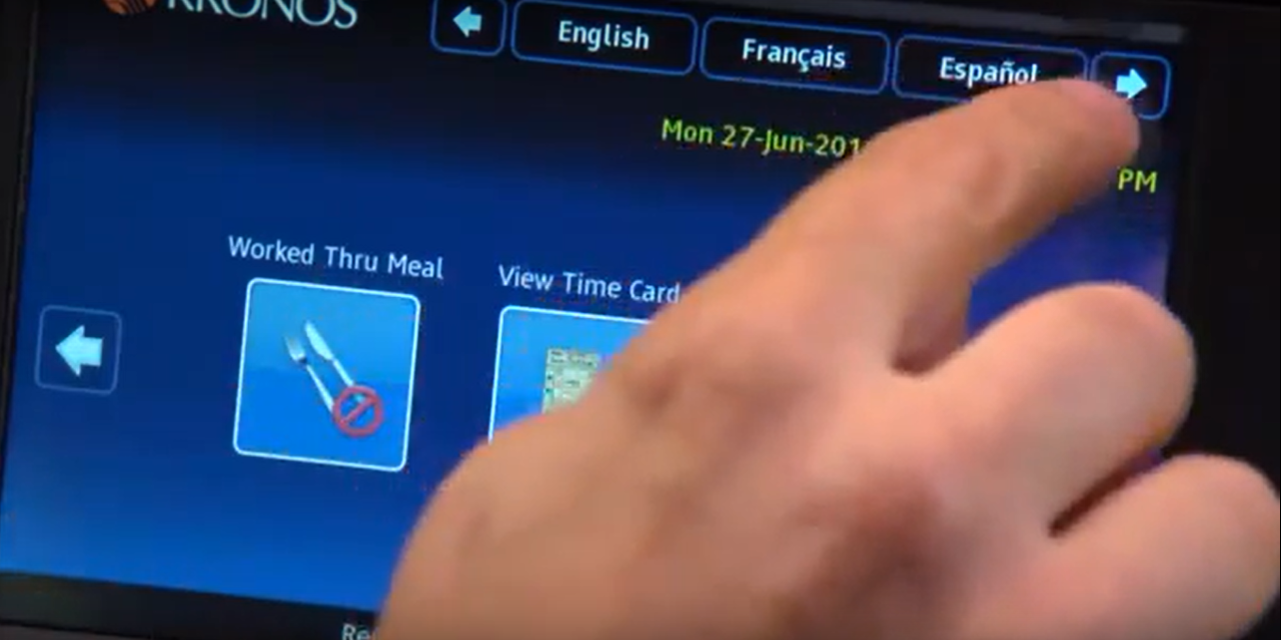Saying it can’t account for how its customers use its products, a vendor that supplies high-tech employee punch clock systems used by a range of employers in Illinois and elsewhere will ask a federal judge to prevent a class action lawsuit filed against it under an Illinois biometric privacy law.
On Feb. 13, NovaTime Technology filed a motion in Chicago federal court, asking permission to file a motion arguing against the attempt to move forward with a class action against NovaTime using the law known as the Illinois Biometric Information Privacy Act.
In a brief filed as an exhibit with the motion, NovaTime asserts the class action should be considered a non-starter, in large part because the lawsuit seeks to make NovaTime pay for the alleged failure by employers using NovaTime’s technology to abide by provisions of the Illinois BIPA law.
“Unlike typical BIPA litigation, this case is not brought by an employee against his employer, nor by a customer against a company who operated the technology,” NovaTime wrote in its proposed memorandum. “Rather, plaintiff … attempts to bring a mega-suit in which he purports to represent every person in Illinois who has ever touched, whether or not at the direction of their employer or after consent was given, any fingerprint reader sold by (NovaTime) or one of its resellers.”
NovaTime said the differences among every possible class member, which could number “tens of thousands of employees from hundreds, if not thousands, of different companies,” makes a class action all but impossible to prosecute fairly under the law.
NovaTime is represented by attorneys Joseph M. Sokolowski and Erin M. Edgerton, of the firm of Fredrikson & Byron P.A., of Minneapolis; and Michael D. Karpeles and Tiffany S. Fordyce, of Greenberg Traurig LLP, of Chicago.
NovaTime has been in court since it was first sued last summer by lawyers with the firms of Stephan Zouras LLP, of Chicago, and Peiffer Wolf Carr & Kane APLC, of St. Louis. They filed the lawsuit against the Rancho Cucamonga, Calif.-based NovaTime in Cook County Circuit Court on behalf of named plaintiff Timothy Thome.
According to the lawsuit, Thome had worked for temporary worker placement firm FlexiCorps, of St. Charles, and had been assigned to a temp position at Plano Molding in 2017. According to the complaint, Thome was required to scan his fingerprints to verify his identity when punching in and out of work shifts through Flexicorps, using a “biometric data reader” supplied by NovaTime.
The complaint asserts NovaTime violated the Illinois BIPA law each time workers like Thome were required to scan fingerprints when punching the clock, because neither NovaTime nor Flexicorps first obtained written authorization from workers to scan fingerprints, nor did the companies provide any notice or other information to workers concerning how the scanned prints would be stored, used, shared or ultimately destroyed.
According to NovaTime’s Feb. 13 filing, Thome also sued Flexicorps separately.
However, Thome and his lawyers are also seeking potentially huge damages from NovaTime, as the BIPA law has been interpreted by lawyers to allow courts to award judgments of $1,000-$5,000 per violation - or $1,000-$5,000 per allegedly improper fingerprint scan. Multiplied over tens of thousands of workers, the total damages could run into hundreds of millions of dollars.
In January, for instance, Facebook agreed to settle a class action under the Illinois BIPA law for $550 million. That lawsuit centered on Facebook’s photo tagging system, which plaintiffs alleged violated the Illinois privacy law by scanning the facial geometry – or “faceprints” – of Illinois residents in photos uploaded to Facebook without their consent.
Overall, however, the majority of the growing number of hundreds of BIPA class actions filed to date have centered on claims employers violated BIPA by requiring employees to scan fingerprints when beginning or ending work shifts, or when accessing secured or sensitive areas within a work place, like a drug locker at a hospital.
While the vast majority of those lawsuits have attacked the employers themselves, several potentially huge class actions have also targeted the vendors who supply the timekeeping devices and software to the employers.
To date, those class actions have assailed market leaders like ADP and Kronos, as well as competitors NovaTime and Icon Time Systems.
A new complaint against Icon was filed Feb. 5 in Cook County court by the firm of McGuire Law P.C., of Chicago. Accusations against Icon mirror those against NovaTime and the other timeclock vendors.
Class actions against Kronos and ADP remain pending in federal court and Cook County court in Chicago. Stephan Zouras is leading the pursuit in each of those class actions.
Kronos and ADP have argued against the class actions. Kronos, for instance, called the lawsuit against it “the epitome of gamesmanship and disregard for fair adjudicatory process,” as it essentially seeks to allow plaintiffs and their lawyers to collect both from plaintiffs’ employers and the timeclock vendors over the same allegations and the same alleged incidents.
In NovaTime’s brief, the company argued the class action claims against it are too broad, sweeping in a host of different employers, including those who may not use fingerprint scanners; those who use fingerprint scanners for only some employees, and not others; and even some employers who would be considered exempt under BIPA’s own definitions and provisions.
The class action claims “do not exist in a vacuum,” NovaTime wrote. “Each individual employee of a third-party employer that utilized NovaTime technology will be governed by different collective bargaining agreements, mandatory arbitration agreements, waivers, consents, exemptions within BIPA itself, and other preemptive federal law which may limit or bar NovaTime’s BIPA liability.
“This tangled web of legal rights and restrictions creates individualized questions of law and fact that predominate over any issues common to all class members.”
To allow the class action to continue under such a “tangled” legal backdrop would violate NovaTime’s rights to defend itself against all the varied claims, the company wrote.
